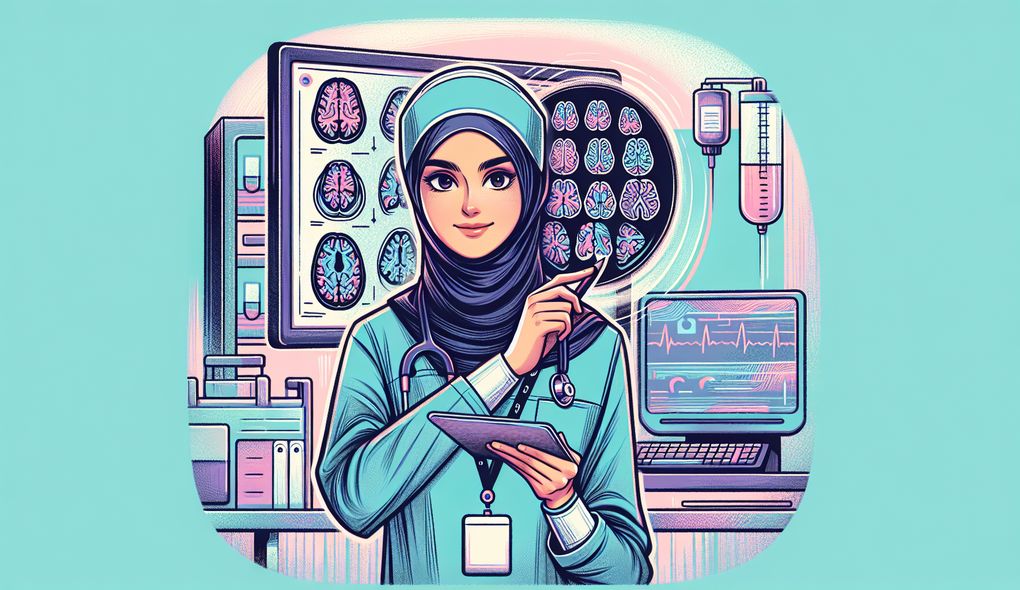What measures do you take to ensure patient safety and prevent complications when managing medication regimes?
INTERMEDIATE LEVEL

Sample answer to the question:
To ensure patient safety and prevent complications when managing medication regimes, I take several measures. First, I always double-check the medication orders to ensure accuracy and appropriateness for the patient's condition. I verify the patient's identity before administering any medication to prevent errors. Additionally, I use barcode scanning technology to match the medication with the patient's electronic medical record, further reducing the risk of medication errors. I also conduct thorough medication reconciliation to identify any discrepancies in the patient's medication history and prevent adverse drug interactions. Lastly, I educate patients about their medications, including proper administration techniques and potential side effects, to promote adherence and prevent complications.
Here is a more solid answer:
Ensuring patient safety and preventing complications when managing medication regimes is a top priority in my practice as a Neurology Nurse Practitioner. I have developed a systematic approach to medication management that incorporates multiple measures. Firstly, I utilize my strong clinical skills and knowledge of neurological disorders to assess each patient's specific medication needs. I carefully review the medication orders, cross-reference them with the patient's medical history, and assess potential contraindications or interactions. In order to minimize errors, I utilize technology such as barcode scanning to ensure accurate administration and proper matching of medication with patients. Additionally, I always follow the five rights of medication administration - right patient, right medication, right dose, right route, and right time. For patients with complex medication regimes, I frequently engage in collaborative discussions with neurologists and pharmacists to develop comprehensive treatment plans. Moreover, I prioritize patient education by thoroughly discussing medication instructions, potential side effects, and any necessary precautions. This empowers patients to actively participate in their own care and alleviates any concerns or misunderstandings they may have. Lastly, to ensure ongoing safety, I perform regular medication reviews and monitoring to identify and address any adverse effects or changes in medication efficacy. These measures collectively contribute to optimal patient safety and prevent complications when managing medication regimes.
Why is this a more solid answer?
The solid answer provides specific details and examples of the measures taken to ensure patient safety and prevent complications. It demonstrates the candidate's expertise in the evaluation areas mentioned in the job description, showcasing their strong clinical skills, communication and interpersonal skills, critical thinking and problem-solving abilities, comprehensive knowledge of neurological disorders and treatments, as well as their ability to work in high-stress environments while maintaining a compassionate demeanor. However, the answer could be further improved by providing more specific examples and incorporating any relevant experiences or achievements.
An example of a exceptional answer:
Patient safety and the prevention of medication-related complications are of utmost importance in my role as a Neurology Nurse Practitioner. To ensure this, I have implemented a comprehensive approach that encompasses various strategies. Firstly, I conduct a thorough assessment of each patient's medical history, including any allergies, previous medication reactions, and comorbidities. This diligent evaluation allows me to identify potential medication contraindications and tailor the treatment plan accordingly. I also collaborate closely with the interdisciplinary team, including neurologists, pharmacists, and nurses, to integrate their expertise into the medication management process. Collectively, we conduct regular medication reviews, discussing any changes or adjustments needed to optimize patient outcomes. Furthermore, I have developed strong relationships with patients and their families, fostering open lines of communication and trust. This enables me to educate patients about their medications, ensuring they have a solid understanding of the purpose, dosing, potential side effects, and self-monitoring techniques. I also emphasize the importance of adherence and provide patients with resources, such as medication organizers and reminder apps, to facilitate medication compliance. Additionally, I stay abreast of the latest advancements in neurology nursing practice through ongoing professional development activities, attending conferences, and engaging in research. This allows me to incorporate evidence-based practices and novel therapeutic approaches into my clinical decision-making. By employing these multifaceted strategies, I consistently promote patient safety, reduce medication errors, and prevent complications in medication management.
Why is this an exceptional answer?
The exceptional answer demonstrates an exceptional level of expertise in the evaluation areas mentioned in the job description. It provides comprehensive details and examples of the measures taken to ensure patient safety and prevent complications when managing medication regimes. The answer showcases the candidate's ability to conduct thorough assessments, collaborate effectively with the interdisciplinary team, establish strong patient relationships, promote patient education and adherence, stay current with advancements in neurology nursing practice, and employ evidence-based practices. The candidate goes above and beyond to highlight their commitment to patient safety, incorporating strategies that exceed the basic expectations of the role. The answer is well-rounded and demonstrates the candidate's ability to excel in the position.
How to prepare for this question:
- Familiarize yourself with common neurological disorders and their corresponding medications
- Stay updated with the latest research and advancements in neurology nursing
- Practice utilizing barcode scanning technology and electronic medical records
- Develop your communication and patient education skills
- Reflect on past experiences where you demonstrated critical thinking and problem-solving in medication management
What are interviewers evaluating with this question?
- Clinical skills
- Communication and interpersonal skills
- Critical thinking and problem-solving abilities
- Knowledge of neurological disorders and treatments
- Ability to work in high-stress environments while maintaining a compassionate demeanor

